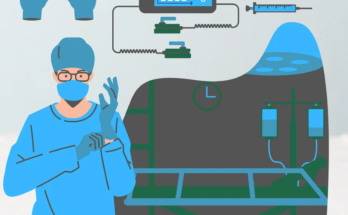Life is unpredictable, and while you may not foresee a disabling injury or illness, it’s essential to prepare for such scenarios. Own Occupation Disability Insurance (often referred to as “Own Occ”) is a specialized type of coverage that ensures financial security if you’re unable to perform the specific duties of your profession due to a disability. This article delves into what Own Occupation Disability Insurance is, how it works, and why it’s a crucial safeguard for professionals.
What is Own Occupation Disability Insurance?
Own Occupation Disability Insurance is a policy that provides income replacement if you are unable to perform the duties of your specific occupation, even if you are capable of working in another job. For instance, a surgeon who loses fine motor skills may not be able to perform surgeries but could still work as a medical consultant. Under an “Own Occ” policy, the surgeon would receive disability benefits because they cannot perform the exact duties of their original role.
Key Features:
- Specific to Your Profession: Focuses on your ability to perform the duties of your own occupation.
- Flexible Claim Conditions: Allows you to work in another field and still receive benefits.
- Customizable Coverage: Tailored for high-income professionals and those with specialized skills.
Types of Own Occupation Definitions
When purchasing an Own Occupation Disability Insurance policy, it’s crucial to understand the type of “Own Occ” definition used. The exact definition impacts when and how you’re eligible to receive benefits.
1. True Own Occupation:
This is the most comprehensive type. You’ll receive benefits if you can’t perform your specific job duties, regardless of whether you work in another profession.
2. Modified Own Occupation:
You’re eligible for benefits if you can’t perform your specific job duties and choose not to work in another field.
3. Transitional Own Occupation:
Provides benefits if you’re unable to perform your original job but limits the benefits to match your pre-disability income.
4. Any Occupation:
This is not true “Own Occ,” but a more restrictive policy where you’ll only receive benefits if you’re unable to work in any job for which you’re reasonably qualified.
Who Needs Own Occupation Disability Insurance?
Own Occupation Disability Insurance is particularly beneficial for professionals with specialized skills and high earning potential. Examples include:
- Healthcare Professionals: Surgeons, dentists, and physicians rely on specific physical abilities to perform their roles.
- Lawyers: Lawyers may face disabilities that impair cognitive or verbal skills essential to their practice.
- Engineers and Architects: Specialized knowledge and problem-solving skills are vital, and a disability could hinder their effectiveness.
- Self-Employed Professionals: Entrepreneurs and consultants who depend on their unique expertise need coverage tailored to their roles.
- Athletes and Performers: Careers dependent on physical abilities require robust disability coverage.
Benefits of Own Occupation Disability Insurance
- Comprehensive Coverage: Ensures financial security if you’re unable to perform the duties of your specific profession.
- Flexibility: Allows you to pursue other career options without losing benefits.
- Income Replacement: Typically replaces 50-70% of your pre-disability income.
- Customizable Policies: Offers riders and add-ons to tailor the coverage to your unique needs.
- Peace of Mind: Provides assurance that your financial stability is protected, allowing you to focus on recovery.
Costs of Own Occupation Disability Insurance
The cost of Own Occupation Disability Insurance varies based on several factors:
Factors Affecting Premiums:
- Age: Younger individuals pay lower premiums.
- Profession: High-risk professions face higher premiums.
- Health Status: Pre-existing conditions can increase premiums or result in exclusions.
- Benefit Amount and Period: Higher coverage and longer benefit periods cost more.
- Optional Riders: Add-ons like cost-of-living adjustments (COLA) or future purchase options increase premiums.
Average Costs:
For high-income professionals, premiums typically range from 1-3% of their annual salary.
Optional Riders to Enhance Coverage
- Cost-of-Living Adjustment (COLA): Adjusts benefits for inflation.
- Future Purchase Option: Allows you to increase coverage as your income grows without additional medical exams.
- Residual Disability Rider: Provides partial benefits if you can work part-time but experience a loss of income.
- Non-Cancelable Policy: Locks in premiums and prevents policy cancellation as long as payments are made.
- Own Occ Extension Rider: Extends the Own Occupation definition for the entire benefit period.
How to Choose the Right Policy
- Assess Your Needs: Evaluate your income, monthly expenses, and career risks.
- Understand Policy Definitions: Ensure the policy has a “True Own Occupation” definition if that’s what you need.
- Compare Providers: Research reputable insurers and compare premiums, benefits, and exclusions.
- Consult an Expert: Work with an insurance advisor to tailor a policy to your needs.
- Review Exclusions: Be aware of conditions or situations not covered by the policy.
Real-Life Scenarios: The Value of Own Occupation Coverage
Case 1: The Surgeon
A 45-year-old orthopedic surgeon develops a neurological condition affecting fine motor skills. While they can no longer perform surgeries, they transition to teaching medicine. A True Own Occupation policy ensures they continue to receive benefits despite earning income in a different role.
Case 2: The Attorney
A high-profile attorney experiences a traumatic brain injury, impacting their cognitive abilities. They can’t work in law but find employment in a consulting role. Their Own Occupation policy provides financial stability.
How to Apply for Own Occupation Disability Insurance
- Research Providers: Look for insurers specializing in Own Occupation policies.
- Complete an Application: Provide detailed information about your health, occupation, and income.
- Undergo Medical Underwriting: Most policies require a medical exam to assess risk.
- Review the Policy: Carefully read the terms and conditions, focusing on definitions, exclusions, and riders.
- Purchase the Policy: Once approved, make the first payment to activate coverage.
Common Myths About Own Occupation Disability Insurance
Myth 1: “I’ll Never Need It”
Disabilities are more common than you think, with many professionals experiencing career-altering conditions.
Myth 2: “It’s Too Expensive”
While premiums can be high, the financial protection far outweighs the costs.
Myth 3: “Workers’ Compensation is Enough”
Workers’ comp only covers job-related injuries, while Own Occupation policies cover both work-related and non-work-related disabilities.
Own Occupation Disability Insurance is a vital tool for safeguarding your financial future. By providing income replacement tailored to your specific profession, it ensures that you maintain financial stability even in the face of career-altering disabilities. Whether you’re a surgeon, attorney, or self-employed professional, investing in an Own Occupation policy is a proactive step toward securing your livelihood. Take the time to assess your needs, explore options, and choose a policy that aligns with your career and financial goals.




